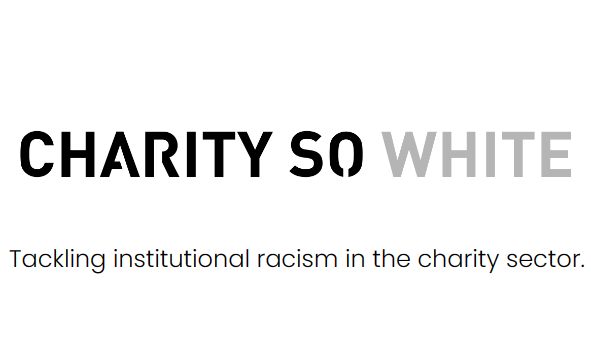The #CharitySoWhite campaign group has apologised after admitting to a raft of failures in recent years that saw its efforts to tackle racism in the charity sector marred by internal disputes, burnout and adopting white supremacist tactics it sought to oppose.
It admits that its tumultuous recent past led it to “mostly disappear for over a year” as burnout threatened its survival.
In a blog post the campaign group has revealed the extent of its recent problems and how it plans to rebuild with a renewed focus on supporting people of colour (PoC) working in the charity sector rather than focus its efforts working with white charity leaders, whose anti-racist work the group describes as “pathetic”.
A key issue it is looking to rectify is that “we have been far too nice to white leaders” adding “we are not a department store for consultancy services, or questions about whiteness”.
It says that “absolutely nothing was solved by CEOs admitting racism existed” during its campaigning, adding “it was a pat on the back for the few, with no impact for the many”.
In a blog published this week the campaign group said:
“#CharitySoWhite came to be seen by white leaders as a critical friend they could ask for performative engagement, rather than a campaign holding their feet to the fire.
“We drowned in their requests for meaningless conversations wanting to ‘pick our brains’, ‘speak at lunch and learns’, or quotes and promotion to rubber stamp their pathetic attempts at anti-racist work.”
#CharitySoWhite burst on the scene to confront systemic racism in a stale and regressive charity sector, then disappeared just as quickly.
— #CharitySoWhite (@CharitySoWhite) September 19, 2023
"Why?" is a question we were asking too.
The answer? White supremacy, internalised racism, and burnout https://t.co/5yu2QmjQKf [1/6]
White supremacy culture
#CharitySoWhite also details how in recent years it adopted “white supremacist power dynamics” and “reflected the system we were trying to dismantle”, by operating a “top-down approach and asking individual white leaders to ‘fix’ the sector”.
“Rather than building community, we built fences and gatekept knowledge. By focusing on direct advocacy with white leaders we gatekept access to power,” the campaign group said.
“By centering whiteness in our work, we prevented ourselves from delivering on the promise of amplifying the voices and experiences of PoC in the charity sector.”
JMB Consulting chief executive Martha Awojobi details how she left the campaign in 2021 “due to white supremacy culture” and said she was proud of the remaining organisers for having “taken the time to interrogate and dismantle a culture that was unsustainable and at odds with their values”.
“I'm excited to see what they do now as they commit to rebuilding a culture of care, accountability and joy,” she added:
In 2021 I left #CharitySoWhite due to white supremacy culture.
— Martha Awojobi (@MarthaAwojobi) September 19, 2023
I have fortunately remained close with many of the remaining organisers and I am so proud of how they have taken the time to interrogate and dismantle a culture that was unsustainable and at odds with their values 1/ https://t.co/7Q2FBxdQzE
Burnout
#CharitySoWhite also admits that its team faced burnout amid “the stream of stories about racism in the charity sector” and their “energy to keep sharing and commenting was increasingly finite”.
“The hamster wheel of reactions wore us down,” it said.
This period saw its team split into subgroups to tackle racism in the charity sector, but this made “organising as a collective more difficult” and exacerbated “fractures, tensions and discontent” in its organisation.
This saw it pause its work in 2021 “but we were burnt out” and the organisation was blighted by division.
“Attempts at mediation weren’t met, and the remaining members spent the next two years trying to find answers and closure, focusing on what went wrong,” said campaigners.
The campaign group also admits that its work reacting to racism in the sector “was ableist” as “committee members with disabilities could not wholly participate and were made to feel like they were not ‘working hard enough’ to keep up with our unsustainable pace of working”.
Next steps
In announcing its change in direction to support PoC instead of focusing on engaging with white charity leaders, #CharitySoWhite has issued an apology.
“We will always ask the question of who we are helping with the work we do. We will signpost to work being done by other activists and other PoC in the anti-racism space, not to help white leaders, but to help those with lived experience and authority promote their skills and services,” it said.
“PoC in the sector we apologise for not being there, for failing you, for not replying to emails, for taking advantage of your support. We don’t expect your forgiveness, we just offer our apologies.”
It details in its “long, difficult, and confessional” statement that it aims to become “a community-led space for envisioning a future where racism is dismantled within the charity sector and where PoC can thrive as their full unapologetic selves”.




.jpg)








Recent Stories